
Fade To Black: Remembering Those Who Died

Jerry Van Dyke — The younger brother of Dick Van Dyke who struggled for decades to achieve his own stardom before clicking as the dim-witted sidekick in ABC’s Coach, died Jan. 5 in Arkansas, according to his manager. Until Coach came along in 1989, Van Dyke was best known to critics as the guy who had starred in one of television’s more improbable sitcoms, 1965′s My Mother the Car on NBC.
Doreen Tracey was one of the original Mouseketeers on Mickey Mouse Club. She appeared on the Disney series when it aired for four years (1955-59) on ABC, auditioning for it at age 12. Tracey died from pneumonia on Jan. 10 after battling cancer for two years. She was 74.
Keith Jackson, whose signature phrases like “Whoa, Nelly!” made him the down-home voice of college football during more than five decades as a sportscaster, covered many sports, but he was best known for college football. A native of rural west Georgia, his smooth baritone voice and use of phrases like “big uglies” for linemen gave his game calls a familiar feel. He was 89 when he died 0n Jan. 12.
Hugh Wilson, an Emmy-winning writer-producer and WKRP in Cincinnati series creator who also directed several features including The First Wives Club and the original Police Academy, died on Jan. 14. He was 74.
Lin Bolen, the first female VP of programming at a TV network and an influential force in daytime television fare, died Jan. 19 at the age of 76. She was appointed VP of daytime programming at NBC in 1972, rising to become the VP of programming in September 1975. NBC thrived under her leadership, becoming the No. 1 network in ratings.
John Coleman was a Good Morning America forecasting icon who went on to co-found The Weather Channel. Considered a pioneer in weathercasting, Coleman enjoyed a 60-year career in television. The 83-year-old Coleman, in his later years, may have become best known for championing skepticism about the human role in climate change. He died on Jan. 20.
Jay Curtis, who produced promotional campaigns for CBS and managed the network’s on-air brand for more than 20 years, died Jan. 25 at 67. Known as “The Creative Lifeguard” for his talent at coaxing creative out of people, Curtis also did work for NBC, Fox, the NCAA, the NFL and several other major houses. He also directed such talent as David Letterman, Bob Newhart, Dick Van Dyke, Dan Rather, George Clooney, Ray Romano, Julia Louis-Dreyfus and Cheech Marin.
John Mahoney, an actor perhaps best known for his role as the cranky, blue-collar dad in the NBC hit Frasier who played counterpoint to pompous sons Frasier and Niles, died at 77 on Feb. 4. Frasier, a Cheers spinoff, ran from 1993 to 2004. Mahoney, a British native who made Chicago his home town, was a two-time Emmy nominee for Frasier, won a 1986 Tony Award for The House of Blue Leaves, and worked steadily in movies.
Ray Moran, a pioneer broadcaster in Texas and New Mexico, was the founder of Ramar Communications, which owned KJTV Lubbock, Texas. He died on Feb. 11 at age 82.
The Rev. Billy Graham, who transformed American religious life through his televised preaching and activism, becoming a counselor to presidents and the most widely heard Christian evangelist in history, died Feb. 21. He was 99. Graham’s integrity was credited with salvaging the reputation of broadcast evangelism in the dark days of the late 1980s, after scandals befell TV preachers Jimmy Swaggart and Jim Bakker.
Helen Sloane Dudman, a former Washington Post editor who held executive positions with the Post’s broadcasting division and PBS and who drew widespread attention to her journalist husband’s 40-day captivity in Cambodia during the Vietnam War, died Feb. 19 at 93.
David Ogden Stiers played Major Charles Emerson Winchester III in CBS’s M*A*S*H and later Cogsworth in Disney’s Beauty and the Beast, among other roles. He received two Emmy nominations for his work on M*A*S*H. His first television credits include The Mary Tyler Moore Show, Charlie’s Angels and Kojak. He was 75 when he died on March 3.
Adam Lynch’s booming baritone and sober demeanor were a fixture of Pittsburgh broadcasting for 43 years. After attending the University of Pittsburgh, he would go on to be an on-camera reporter and anchor at all three major network affiliates during a career that saw local broadcast news grow from its infancy to become a mainstay in people’s homes. He was 89 when he died on Feb. 27.
Eric Small was a TV tech whiz and the founder of Modulation Sciences. He was best known for his contributions to stereo TV sound and for his work with Bob Orban in developing the Optimod, the audio processor that became a fixture in many FM stations. He died March 15 at age 71.
Frank Avruch, a legendary Boston broadcaster and performer for more than 40 years on WCVB Boston, died March 20 at his home in Boston. He was 89. “Frank Avruch was one of the most influential and beloved personalities on Boston television and a cherished member of the Channel 5 family,” said Bill Fine, WCVB president-GM.
Charlie Rhodes, who died March 20 at age 88, was a pioneering broadcast engineer and digital TV innovator known for stints at such companies as Tektronix and the Advanced Television Test Center. He received the 1996 NAB TV Engineering Achievement Award.
Wayne Huizenga, a college dropout who built Blockbuster Entertainment into a thriving business that eventually was sold to Viacom in an $8.4 billion deal before its ultimate demise, died March 22. He was 80.
Lawrence K. Grossman, who as president of PBS doubled the length of the MacNeil/Lehrer Report, its signature news program, then headed NBC News, where he dealt unhappily with budget austerity after it came under General Electric’s ownership, died March 23. He was 86.
Vince Leonard, a longtime anchor at KYW Philadelphia, came to Philadelphia from Indianapolis in 1958 to anchor a 15-minute news program on ch. 3 when it was WRCV. In 1965, ch. 3 became KYW-TV and Leonard was part of the original team when the station’s new owner, Westinghouse, introduced the Eyewitness News format. He remained with KYW until 1980, when he moved to Phoenix and joined KPNX. Leonard retired in 1989. He was 92 when he died on March 30.
Steven Bochco, who won 10 primetime Emmys, created several hit television shows including Hill Street Blues, L.A. Law, NYPD Blue and Doogie Howser, M.D., died at 74 on April 1. Premiering in January 1981, Hill Street Blues challenged, even confounded the meager audience that sampled it. Then, on a wave of critical acclaim, the series began to click with viewers, while scoring a history-making 27 Emmy nominations its first year. During its seven-season run, it would win 26 Emmys and launch Bochco on a course that has led to dozens of series and earned him four Peabody awards, in addition to his 10 Emmys.
Chuck McCann, a goofy, good-natured comedian and TV host who was a hero to kids of all ages in and around New York City in the 1960s before he jumped into films, network television and commercials, died April 8 at age 83.
Harry Anderson, the actor best known for playing an off-the-wall judge working the night shift of a Manhattan court room in the NBC comedy series Night Court, died April 16. He was 65. He also starred in the series Dave’s World and appeared on Cheers as con man Harry “The Hat” Gittes. Anderson prided himself on being a magician as well as actor.

Anthony Bourdain
Anthony Bourdain, the celebrity chef and citizen of the world who inspired millions to share his delight in food and the bonds it created, was found dead in his hotel room on June 8 in France while working on his CNN series on culinary traditions. He was 61. Widely loved and rarely afraid to speak his mind, he mixed a coarseness and whimsical sense of adventurousness, true to the rock ‘n’ roll music he loved. Bourdain’s Parts Unknown seemed like an odd choice for CNN when it started in 2013 — part travelogue, part history lesson, part love letter to exotic foods. Each trip was an adventure. There had been nothing quite like it on the staid news network, and it became an immediate hit.
Dick Feagler, a longtime Cleveland anchor, died July 1 at 79. A temporary job as a TV commentator that Feagler took during a newspaper strike in 1974 turned into a regular presence on the airwaves — first as anchor on WKYC, and then with his own talk show, Feagler and Friends on WVIZ.

Stanley Moger
Stan Moger was a producer and distributor of many popular TV shows whose remarkable career also included work as a radio announcer, TV personality, show biz publicist, voice-over artist, account executive and media buyer. NATPE once named Moger a “legend of syndication,” but he hardly needed such certification. The many shows he either produced, syndicated or otherwise distributed trace the history of television. They include everything from Walt Disney’s Mickey Mouse Club and The Joey Bishop Show to the Lost Kennedy Home Movies and the Battle of the Network Stars. Moger died July 25. He was 81.
H.F. “Gerry” Lenfest, who made a $1 billion fortune in the cable industry and gave almost all of it away, supporting schools, museums, journalism and the arts in Philadelphia and beyond, died Aug. 5 at age 88.
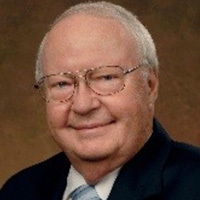
Joe Flaherty
Television viewers around the globe owe a debt to Joseph A. Flaherty. After getting a degree in physics and serving in the U.S. Army Signal Corps, he joined NBC in New York City as a television engineer in 1955. Two years later, he moved to CBS where he would make his mark. In the 1970’s, Flaherty revolutionized the television news industry by changing the process by which news stories were captured. His foresight led to the replacement of 16 mm film to gather news, supplanting it with electronic news gathering (ENG), thereby eliminating the painstaking and time-consuming process of exposing the film negative, transporting the film to the station, developing the film and transferring the film to television. Next was his work in the 1980s developing high-definition television. On Feb. 7, 1981, he demonstrated “Hi-Vision” or HDTV to the Hollywood production community at the SMPTE annual technical conference. He was an active author and lecturer, presenting over 188 published papers and lectures during his career. Flaherty’s technology leadership was not only acknowledged in America, but throughout the world by the presentation of numerous major broadcasting awards and honors. He was 87 when he died on Aug. 7.
Ed Brandon, 75, was a popular KTRK Houston weatherman from May 1972 until April 2007. He died Aug. 21.
Robin Leach, whose voice crystallized the opulent 1980s on Lifestyles of the Rich and Famous, first in syndication, then on ABC, died Aug. 24. He was 76.
Neil Simon got his start as a radio and TV writer, then went on to become one of America’s most famous playwrights. Simon’s stage successes included The Odd Couple, Barefoot in the Park, the Brighton Beach trilogy, The Prisoner of Second Avenue, Last of the Red Hot Lovers, The Sunshine Boys, Plaza Suite, Chapter Two, Sweet Charity and Promises, Promises. Many of his plays were adapted into movies and one, The Odd Couple, even became a popular ABC series. He was 91 when he died on Aug. 25.
Former ABC News correspondent Barrie Dunsmore — who worked at ABC News for 30 years — died Aug. 26 at the age of 79. He was an expert on U.S./Soviet relations, and reported for Nightline on the historic fall of the Berlin Wall. His tenure at ABC News spanned seven presidents, six continents and more than 100 countries.
Bill Daily, the comic sidekick to leading men on the sitcoms I Dream of Jeannie and The Bob Newhart Show, died Sept. 4 at age 91. Daily was not a household name but he was a household face, familiar to many millions of baby-boomer viewers in the 1960s and ’70s from two of the era’s biggest shows.
Susan Howarth was a 43-year public broadcasting veteran who led the digital revolution at WCET Cincinnati, the nation’s first licensed public TV station. She led the station until its merger with WPTD Dayton in 2008. She died Sept. 5 at 66.
Burt Reynolds, 82, a top Hollywood star of the 1970s whose hits ranged from such classic, easy-going drive-in fare as Smokey and the Bandit to the intense, hunted-men drama Deliverance, died Sept. 6. With a sly, knowing grin, signature moustache and a unique blend of charm, cool and machismo, Reynolds was a bona fide cultural phenomenon. After leaving school, he soon scored TV roles and was toplining his own series — NBC’s two-season Riverboat — by 1959. He went on to guest or recur in the 1960s on such classic shows as Gunsmoke, Route 66, The FBI and the final hourlong episode of The Twilight Zone. He landed a second starring TV series in 1966, playing an Iroquois Indian police detective in ABC’s Hawk. It lasted only one season but, as he movie career took off, NBC re-aired the series during the summer of 1976. An episode Hawk was Reynolds’ first time in the director’s chair — a TV role he would reprise in the 1980s with episodes of Amazing Stories and Alfred Hitchcock Presents. Reynolds continued to work in TV and film through the ’60s before landing a third toplining TV series. This time it was ABC’s Dan August (1970), playing a detective who got personally involved in his cases. In addition, he became a frequent guest of Johnny Carson’s Tonight Show. Reynolds continued to work in TV and film into the 2010s.
Thaddeus Q. Mumford was a pioneering African-American TV writer-producer who worked on shows ranging from M*A*S*H to The Electric Company to Blue’s Clues. With his longtime writing partner Dan Wilcox, Mumford worked on the final three seasons of M*A*S*H, as well as such shows as Maude, Good Times, ALF, B.J. and the Bear, Coach, The Cosby Show, A Different World, Home Improvement and Judging Amy. He was 67 when he died on Sept. 6.
Rick Breitenfeld, a retired station executive whose work in the early 1960s helped shape the case for the Public Broadcasting Act, died Sept. 28. He was 87. Breitenfeld’s many career achievements included serving as founding executive director of the Maryland Center for Public Broadcasting and leading Maryland Public Television for 17 years; chairing the first board of American Program Service, now American Public Television; leading WHYY Philadelphia for 14 years; and working as a member of the FCC’s Temporary Commission on Alternate Funding for Public Broadcasting in 1993.
Joe Glover was a popular TV presence at WJBK Detroit, from the 1970s to the early 1990s. He had a long, Emmy-winning career as a TV reporter and anchor for several stations across the country, including ones in New York and California. He died Oct. 5 at age 79.
Robert Pitofsky, a scholar of antitrust law who as chairman of the Federal Trade Commission was credited with energizing the agency dubbed the “little old lady of Pennsylvania Avenue” with his forceful yet measured approach to competition and consumer protection, died Oct. 6 at age 88.
Paul G. Allen, who co-founded Microsoft with his childhood friend Bill Gates before becoming a billionaire philanthropist, technology investor and owner of several professional sports teams, died Oct. 15 at 65. Allen and Gates met while attending a private school in north Seattle. The two friends would later drop out of college to pursue the future they envisioned: A world with a computer in every home. Allen left their company just eight years after its founding in 1975. He served as Microsoft’s executive vice president of research and new product development until 1983, when he resigned after being diagnosed with cancer.
Over the course of a 35-year career in local news, most of it as the consumer watchdog at WITI Milwaukee, Tom Hooper‘s name became synonymous with the journalism principles of comforting the afflicted and giving voice to the voiceless. He died Oct. 19 at 85.
Lee Kinard was a legend in North Carolina television, spending his entire career at WFMY Greensboro. Imagine a morning news with a 52 rating/70 share in a top-50 market. How about a 6 p.m. newscast with a 42 rating/61 share? Those were stunning numbers, even back in 1988. He was 87 when he died on Oct. 20.
Larry Michie, a former television editor at Variety, died Nov. 7. He was 77. Michie began his journalism career in Washington D.C., as a reporter for trade journal Broadcasting magazine. He later came to cover Washington news for Variety exclusively in the late 1960s. He went on to succeed Les Brown as Variety’s television editor. Then based in New York, Michie was one of a triumvirate of television editors who had great influence over the burgeoning broadcast market.
Stan Lee, 95, the creative dynamo who revolutionized the comic book and helped make billions for Hollywood by introducing human frailties in superheroes such as Spider-Man, the Fantastic Four and the Incredible Hulk, died Nov. 12. As the top writer at Marvel Comics and later as its publisher, Lee was widely considered the architect of the contemporary comic book. He revived the industry in the 1960s by offering the costumes and action craved by younger readers while insisting on sophisticated plots, college-level dialogue, satire, science fiction, even philosophy. He hit his stride in the 1960s when he brought the Fantastic Four, the Hulk, Spider-Man, Iron Man and numerous others to life.
Stephen Hillenburg, who created SpongeBob SquarePants and the absurd undersea world he inhabited, died Nov. 26. He was 57. An Oklahoma native with a love of both drawing and marine biology, Hillenburg conceived, wrote, produced and directed the animated series that began on Nickelodeon in 1999 and went on to spawn hundreds of episodes, movies and a Broadway show.
Known for his kindness, compassion and professionalism, former NAB SVP of Communications Walt Wurfel was a broadcast professional who had experience in dozens of separate communications sectors: as a reporter, news director, press secretary, editor, radio station owner and ham radio operator. He was 81 when he died Nov. 29.
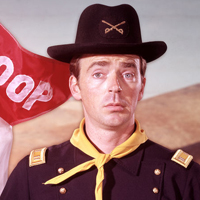
Ken Berry
Ken Berry, an actor and dancer who played the affable and clumsy Capt. Wilton Parmenter in the 1960s ABC sitcom F Troop, died Dec. 1. He was 85. After F Troop, Berry went to on to star in Mayberry R.F.D., a spin-off of The Andy Griffith Show, where Berry appeared during the show’s final year. he also starred in NBC’s Mama’s Family with Vicki Lawrence, Rue McClanahan and Betty White.
Allan White, one of the original members of the WCPO Cincinnati newsroom and a local broadcasting legend, died Dec. 8 at the age of 94. White worked for the Cincinnati Post and WCPO-AM, both owned by Scripps Howard, in the 1950s before being approached by Al Schottelkotte in 1959 with an offer to help create a TV news operation. He accepted and joined the four-person WCPO-TV news department. White organized the first live local remote TV broadcast when WCPO televised the notorious George Ratterman trial in Newport in 1961. He also conducted live interviews with the key players inside and outside the courtroom.
Jim Wareham, GM of Gray’s KVLY Fargo, N.D., died Dec. 14 at 67. He joined the station in 2011. Prior to then, he was general manager of KIDK (CBS) in Idaho Falls, Idaho; WLAJ (ABC) in Lansing, Mich.; and WTVM (ABC), in Columbus, Ga. He previously was station manager of WSEE (CBS) in Erie, Pa.
Penny Marshall, the trailblazing director of smash-hit big-screen comedies such as Big and A League of Their Own who first indelibly starred in the top-rated sitcom Laverne & Shirley, died Dec. 17. She was 75. In Laverne & Shirley, among television’s biggest hits for much of its eight-season run between 1976-1983, the nasal-voiced, Bronx-born Marshall starred as Laverne DeFazio alongside Cindy Williams as a pair of blue-collar roommates toiling on the assembly line of a Milwaukee brewery. A spinoff of Happy Days, the series was the rare network hit about working-class characters, and its self-empowering opening song (“Give her any chance, she’ll take it/ Give her any rule, she’ll break it”) foreshadowed Marshall’s own path as a pioneering female filmmaker in Hollywood. Marshall directed several episodes of Laverne & Shirley, which her older brother, the late filmmaker-producer Garry Marshall, created. Those episodes helped launch Marshall as a filmmaker.







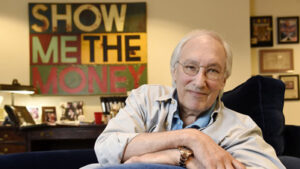
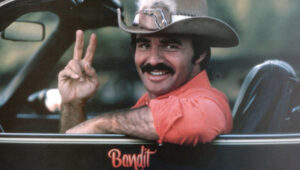

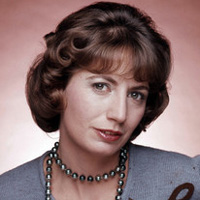























Comments (0)